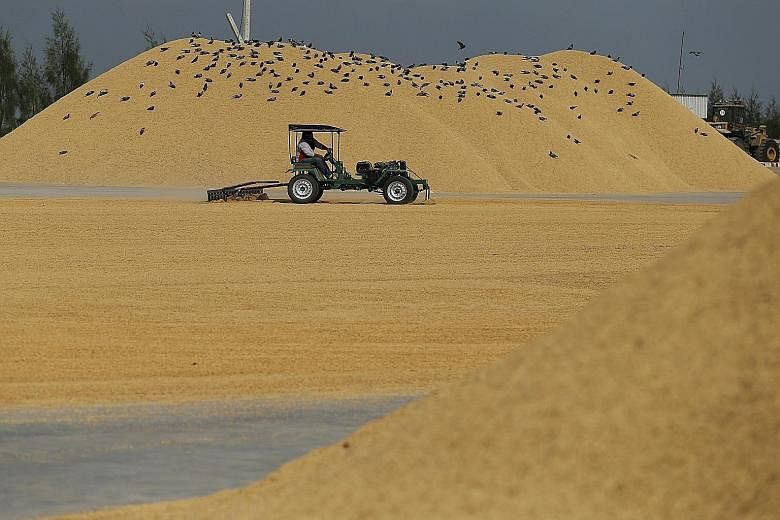On Dec 19, Thailand and China held a groundbreaking ceremony for a joint railway project, despite the fact that negotiations over financing had not been finalised.
The peculiar arrangement is perhaps a reflection of Bangkok's economic imperative; as the military government continues unchallenged in its second year, it urgently needs to show some fruit of political stability.
Weighed down by the economic slowdown in China - its largest trade partner - Thailand did not see as big a rebound last year as it had hoped from the political crisis- plagued 2014. The central bank forecast a full-year growth of 2.8 per cent for 2015.
Deputy Prime Minister Somkid Jatusripitak, who is devising economic strategy, expects new stimulus measures and infrastructure projects to push growth to 4 per cent this year, but economists are less bullish.
HSBC's growth forecast is 3.1 per cent. "Private consumption has stabilised but given high household debt and expectation of low wage growth, consumption growth is likely to be capped at a low level in 2016 too," its economist Nalin Chutchotitham told The Sunday Times.
-
The year ahead
-
• Military government will look to stimulus measures and infrastructure to boost economy and make up for weak growth in 2015.
• Farmers' income - and therefore their spending - expected to remain weak due to El Nino-induced drought, lack of water for planting and poor global commodity prices.
"Severe drought and weak global commodity prices also threaten to prolong farm income weakness, and therefore consumption in the rural areas."
Water is a big concern. The El Nino phenomenon will make the November-April dry season one of the most parched on record, prompting irrigation officials to persuade rice farmers in the fertile Chao Phraya river basin to hold off planting padi during this period.
"We don't have water for them," said Mr Somchit Amnatsan, who oversees water management at the Royal Irrigation Department. The water shortage will shrink farmers' income further, given the withdrawal of generous rice farming subsidies offered by the civilian government ousted in the May 2014 coup.
Meanwhile, Thailand's big business will come under increasing global scrutiny. Recent media probes into labour abuse in its seafood industry have put some of Thailand's biggest exporters on the defensive. Thai Union Group, the world's largest producer of canned tuna, last month said it would bring all its shrimp processing in-house from this year, after an Associated Press report said one of its suppliers was allegedly using forced labour.
-
A new year could mean new beginnings for nations looking for a fresh start. New leaders will be elected in the United States and the Philippines. But there is also a sense that more of the same is the way forward.
Thailand's aviation sector will also be under pressure, after the International Civil Aviation Organisation and the US Federal Aviation Administration flagged concerns about the way it was regulated.
On the political front, analysts do not expect significant challenges to the junta. The military seized power in May 2014 amid anxiety about the looming royal transition. King Bhumibol Adulyadej, 88, is revered by the masses but is in frail health.
The International Crisis Group, in a report last month, noted: "Most Thais do not expect the military to step down for several years, until well after a new king is on the throne."
Last September, a junta-appointed reform council rejected a draft Constitution drawn up by a handpicked committee, restarting the whole drafting process and pushing back the projected date of an election to at least 2017.
Some of the more controversial elements in the draft include provisions allowing for an unelected prime minister, as well as a military-stacked panel that will have the power to override the government in times of crisis. The new drafting committee has demonstrated a similar conservative bent.
Meanwhile, the administration is expected to increase surveillance and prosecution of individuals who defame or insult the monarchy. Each count of lese majeste is already punishable by up to 15 years in jail. The 2015 budget allocated 17.27 billion baht (S$676 million) to "uphold, protect and preserve the monarchy from any offences".

